Dehydrated pickles? Did I just go there? That’s right, you can dehydrate ferments and at first taste, you might be tempted to toss them, but wait! There’s a good use for those extremely strong, salty, tangy flavors and you’ll see what I mean when you try my “Fermented Pickle Salt Recipe” which you could also think of as a fermented dill pickle powder.
The story behind how I came up with this idea was that I had 2 jars of dill pickles that went a little too soft for my taste. I almost composted them, but the mad fermentation scientist in me said that I needed to do an experiment.
Interesting to see how different ferments turn out like the coloring above.
I actually let the jars sit on the counter for at least a couple weeks, which means they fermented much farther than my normal 3 day “half sour” dill pickle recipe and these are by far “full sour” pickles.
At first, I figured I’d just see what dehydrated pickle chips tasted like and then it occurred to me to try at least 4 different variations on this to see what I could do with each:
- Dehydrated pickle spears – take a pickle spear and dehydrate it as is
- Dehydrated pickle chips (slices) – slice a pickle into rounds or slice spears into chips and dehydrate
- Dehydrated pickle leather – take a nicely fermented jar of sour dill pickles, blend them up along with the flavorful brine and garlic and dehydrate into a sheet
- Dehydrated dill pickle powder (or pickle salt) – take the dehydrated pickle leather and then grind it into a powder. This can also be thought of as dill pickle salt since it’s concentrated, very salty, and can be sprinkled onto food or in soups.
Like I said before, at first I thought it was a total failure because the flavor was so concentrated and the salt was just too much when you took a nibble of the pickle leather or the pickle chips. Here are my thoughts on all 4 variations.
Dehydrated Pickle Spears
VERDICT: FAIL
The spears didn’t dehydrate so well and actually curled in on themselves trapping more moisture. I really don’t see any use for dried pickle spears because they’re very tough and I guess you could call them pickle jerky at this point.
They could be cut up or ground up and used in soups or recipes, but I think cutting them or blending them beforehand will make the job much easier and give you a better end result so:
Dehydrated Pickle Chips
VERDICT: PARTIAL FAIL
I would say the dried pickle chips are only one step better than the spears, but if you wanted to store pickle chips in bulk in your food storage and keep the integrity of a pickle, this might be the way to do it. I would definitely not look to this as a survival food because it’s very strong.
Pickle chips could be thrown into soups like potato soups that might require a dill flavor, but they will not rehydrate back into a pickle that you would recognize. They could also be ground up into a powder, but you could skip all the cutting and go right to the next one.
Dehydrated Pickle Leather
VERDICT: WIN
This is where things got interesting. When dehydrating ferments, you can blend them into the consistency of a smoothie, pour this onto your dehydrating trays that have a fruit leather sheet, and dehydrate away!
I let my Excalibur dehydrator go overnight and by morning, I had a nice crisp, dry sheet of extreme pickle flavor that I had two ideas for. The first option was to tear the sheet into several smaller pieces and store this in a jar. You could use these by dropping a few small sheets into any recipes that call for dill and salt like soups.
Dehydrated Dill Pickle Powder (or Pickle Salt)
VERDICT: BIG WIN!
The second way I could use my fermented pickle leather was to crumble the leather into my blender and grind it into a fine pickle powder or what I’ve come to think about it now as a fermented dill pickle salt.
The nice thing about this fermented pickle powder is it’s extremely flavorful as in very tangy, it’s very salty, but salty with sea salt, and since it’s in powder form you can use as much or as little of it as you want.
This means you can sprinkle a dash into soups, shake some onto a sandwich that needs some flavor, tap a little onto cucumber slices or other veggies, or any other number of ways you could come up with for a flavorful salt.
Here’s what they all look like from fresh dill pickles, to dried spears & chips, shreds, and powder:
Fermented Dill Pickle Salt Recipe
Makes maybe 1/4 to 1/2 cup of pickle salt.
This very flavorful pickle sea salt can be used as you would any kind of flavored salt to liven up a dish, sandwich, or sprinkled on raw veggies.
Take a jar of homemade pickles, strain the brine, and put your dill pickles into the blender along with anything else in there like garlic or some of the spices. It’s really up to you.
Pour a bit of the brine into the blender along with your pickles. I used about 1/3 or 1/4 of the volume of pickles so if you have 2 cups of pickles, use maybe 2/3 or 1/2 cup of brine. The end result is that you want the consistency of a smoothie.
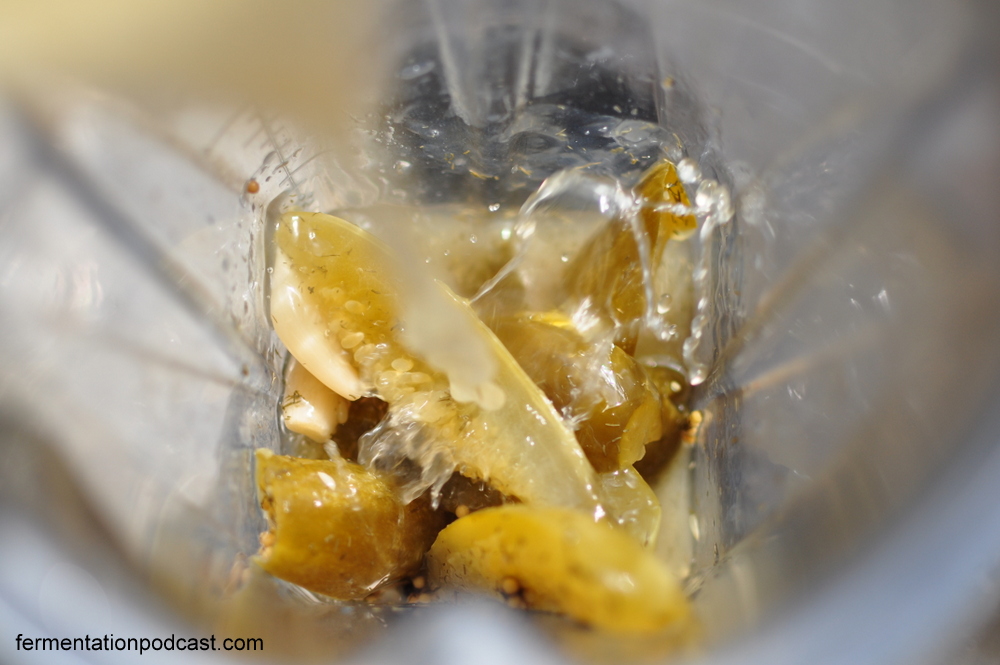
Blend to a nice, fine slurry and then pour this onto your dehydrating sheets.
Dehydrate overnight or as long as it takes to dry the whole sheet. The edges dry first and will turn lighter in color, while the center will dry last so you’ll be able to tell.
Peel the dried pickle leather off the sheets and either tear some into pieces to save in a jar or tear up slightly and put them all into a blender or food processor to be ground fine.
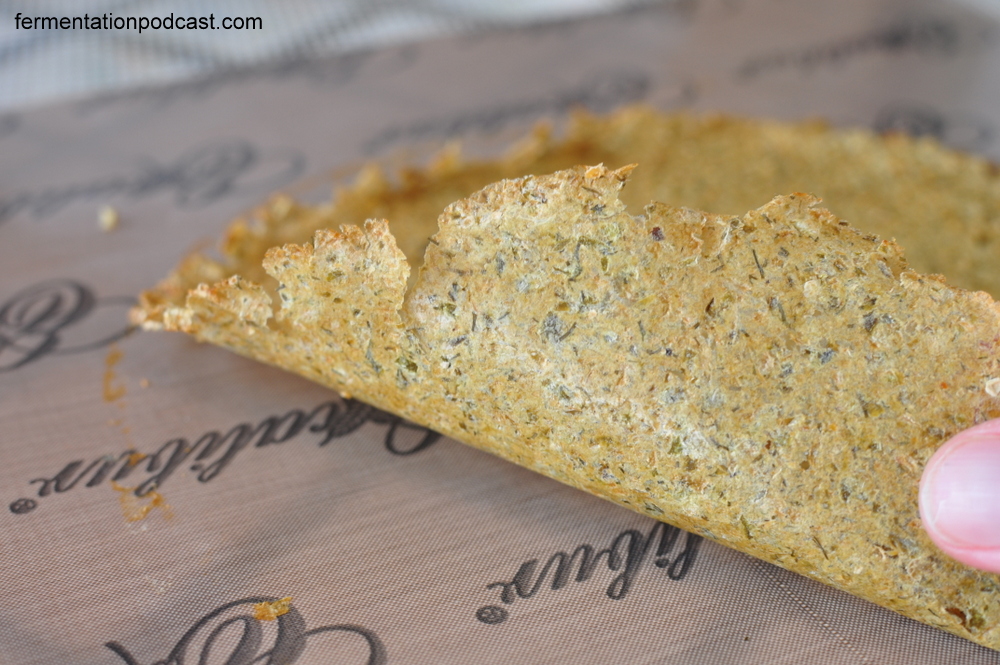
You now have fermented pickle salt that you can put into a shaker or a small jar, but don’t forget! This is a dried product so moisture will cause it to clump, but you shouldn’t have to worry about mold since the moisture is so low and the acidity is still pretty acid.
You might ask what is the best dehydrator out there? I only have experience with the amazing and wonderful Excalibur 9 tray model so that’s really all I can comment on, but it has quite a bit of drying space and has done a great job for me for several years now.
Conclusions on using a Dehydrator to Dehydrate Pickles & other Ferments
This will definitely work for other ferments and I hope you guys figure out some new ways to make and use some of these flavorful salts. As long as you keep the powders in a moisture free environment, they should keep for quite a while.
You could probably do like restaurants do and put grains of rice into your flavored salt shakers to keep them from clumping, otherwise you’ll just have to break it up now and again.
Some other ideas I think would work great to ferment, blend, dehydrate, and then grind into fermented salt would be:
- fermented sweet pickled peppers
- fermented spicy pickled peppers
- sauerkraut?
- kimchi?
- fermented garlic
- fermented onions
- fermented tomatoes with salt (like a powdered ketchup?)
- fermented salty lemons or limes (tangy lemon salt, yum!)
I hope I’ve given you a few ideas here and would LOVE to know what you might have come up with or come across that could be a variation of this and expand on it.
Let me know in the comments section below!

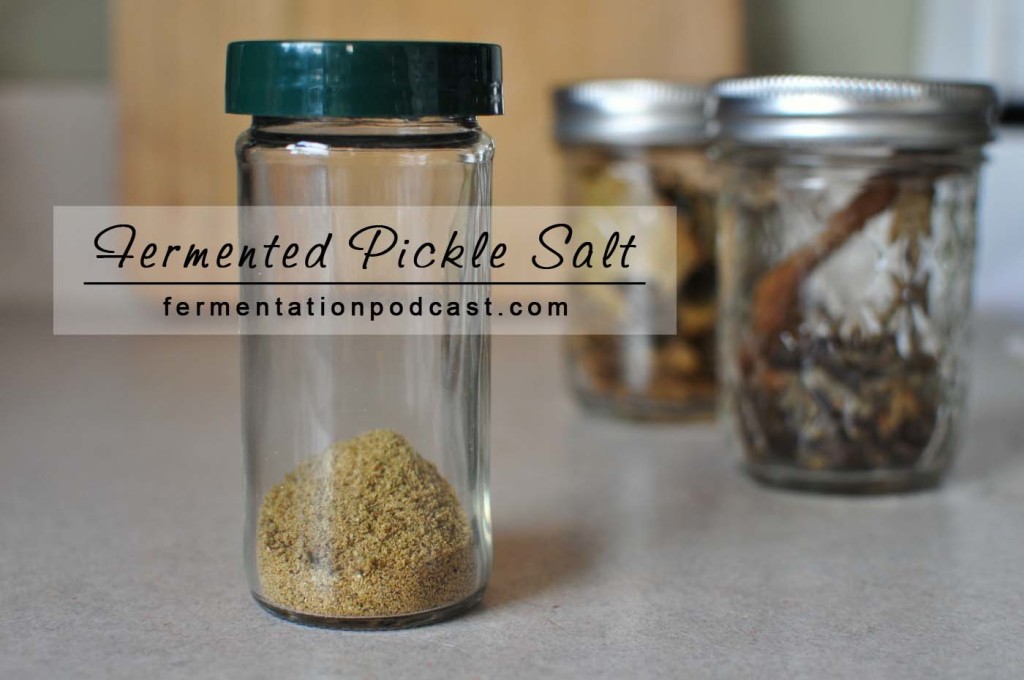
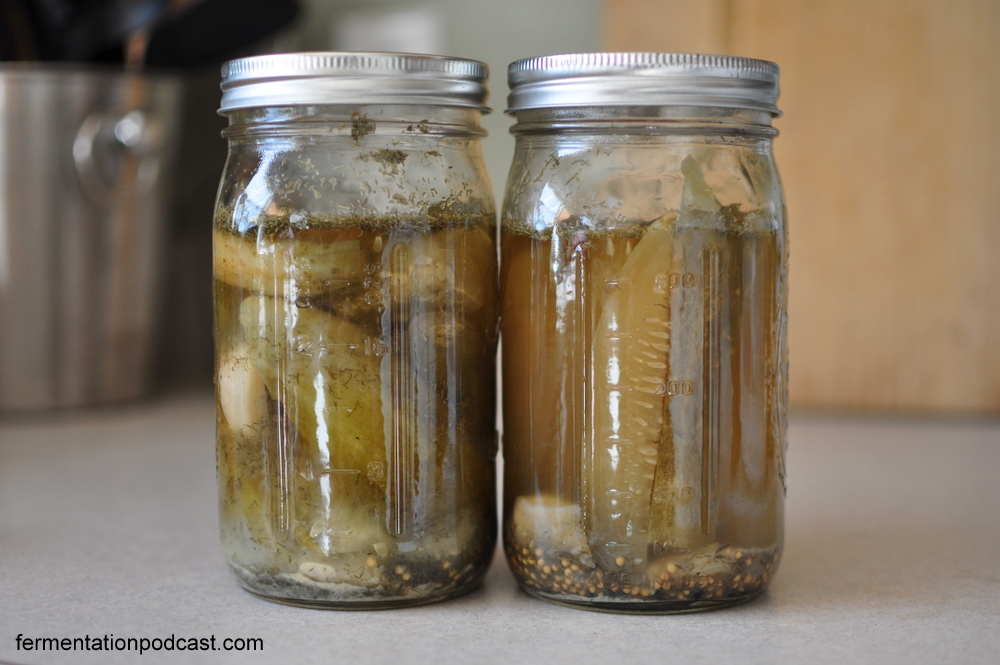
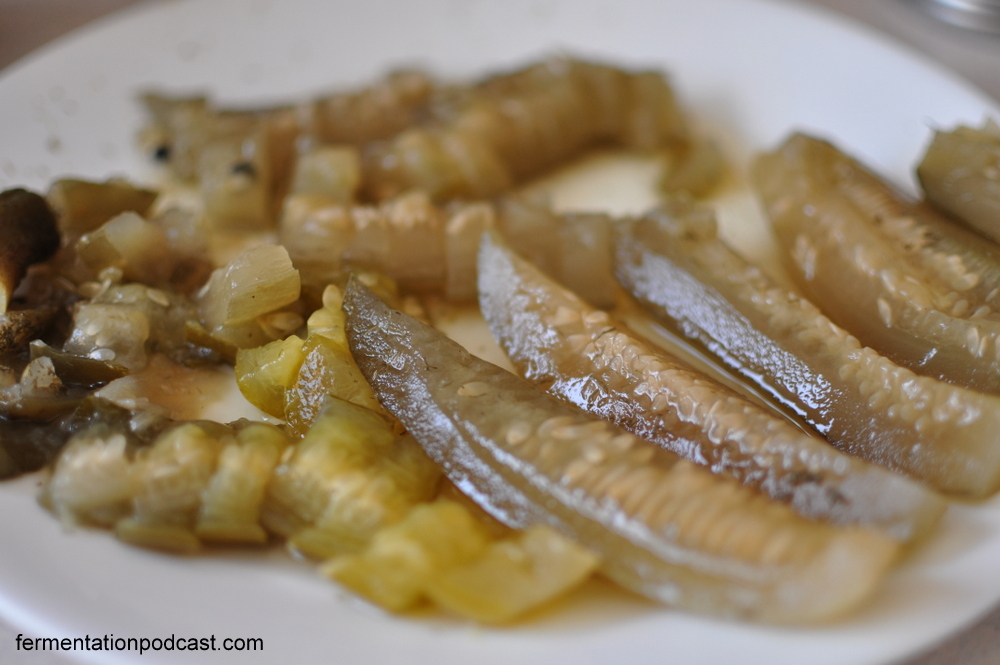
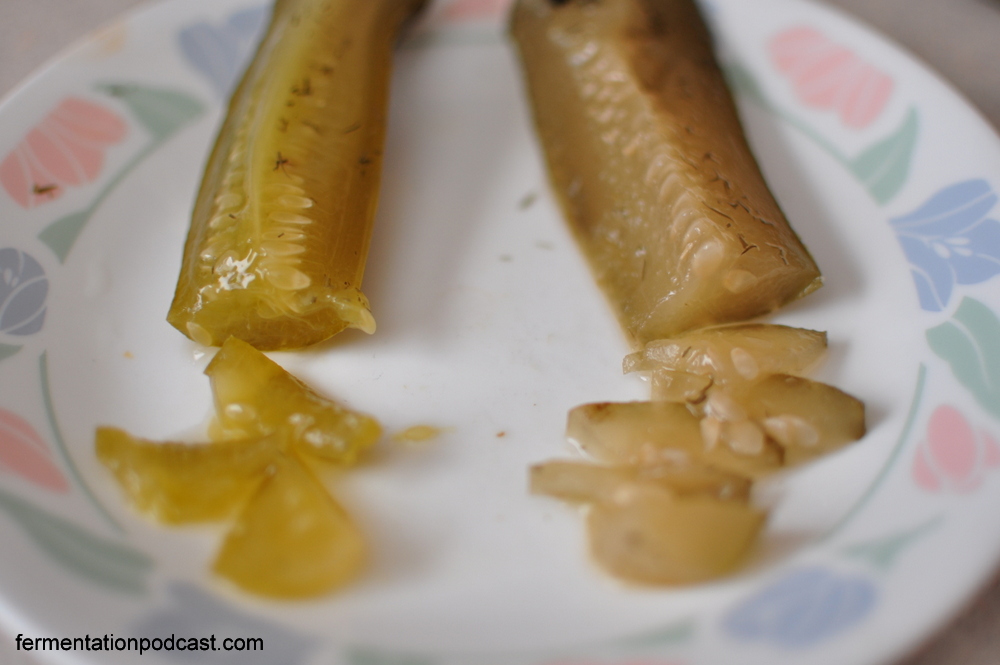
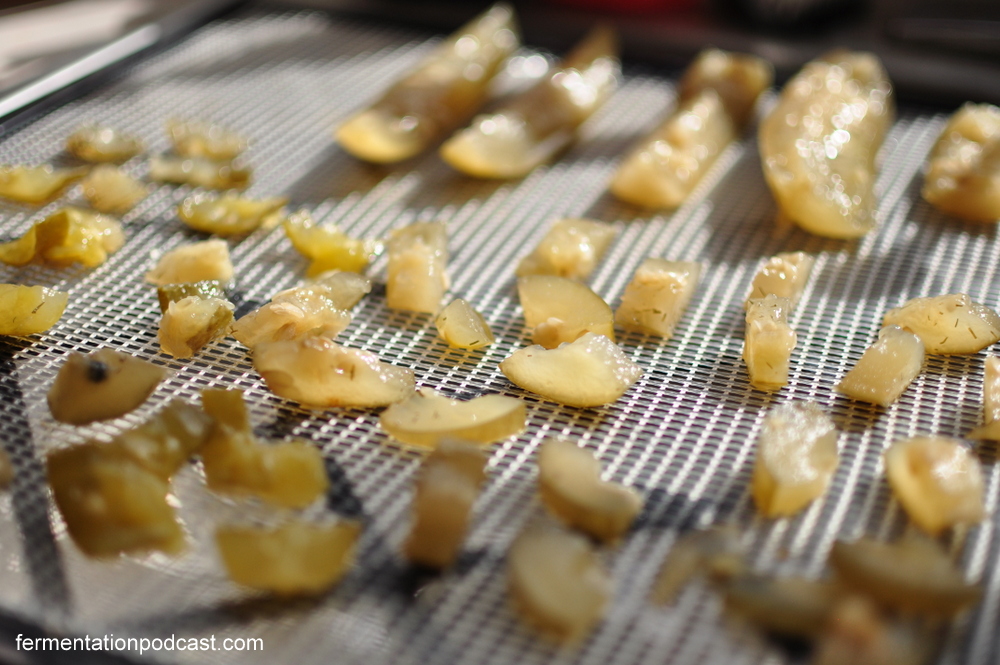
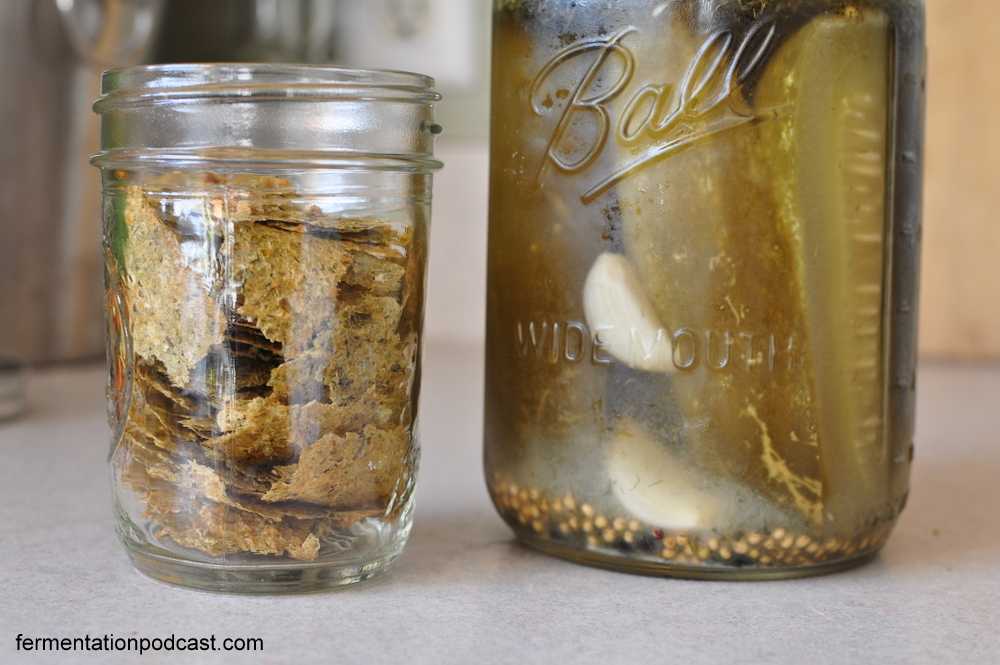
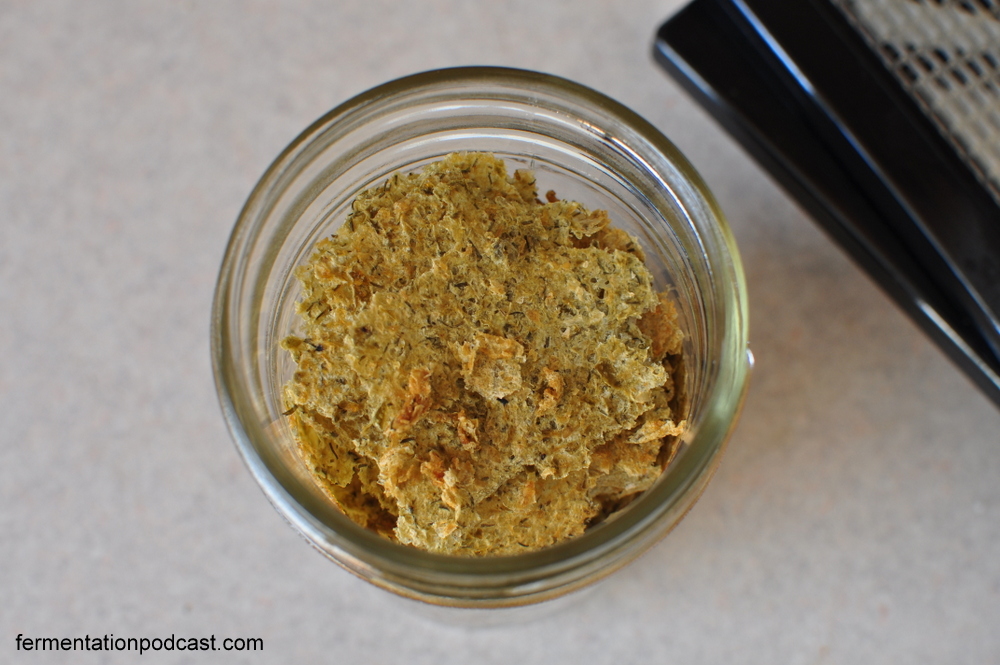
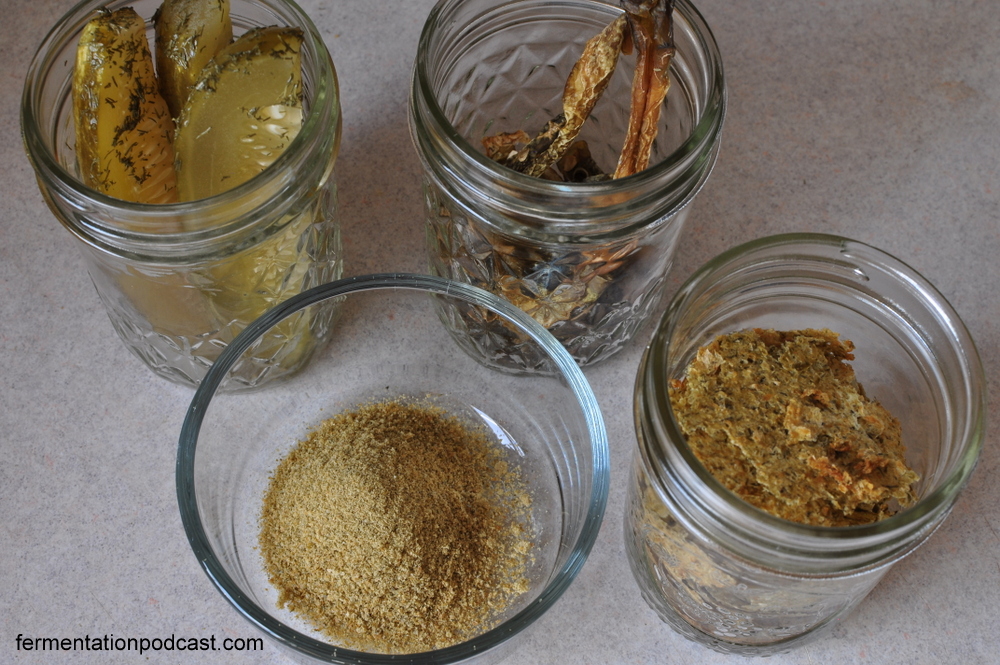
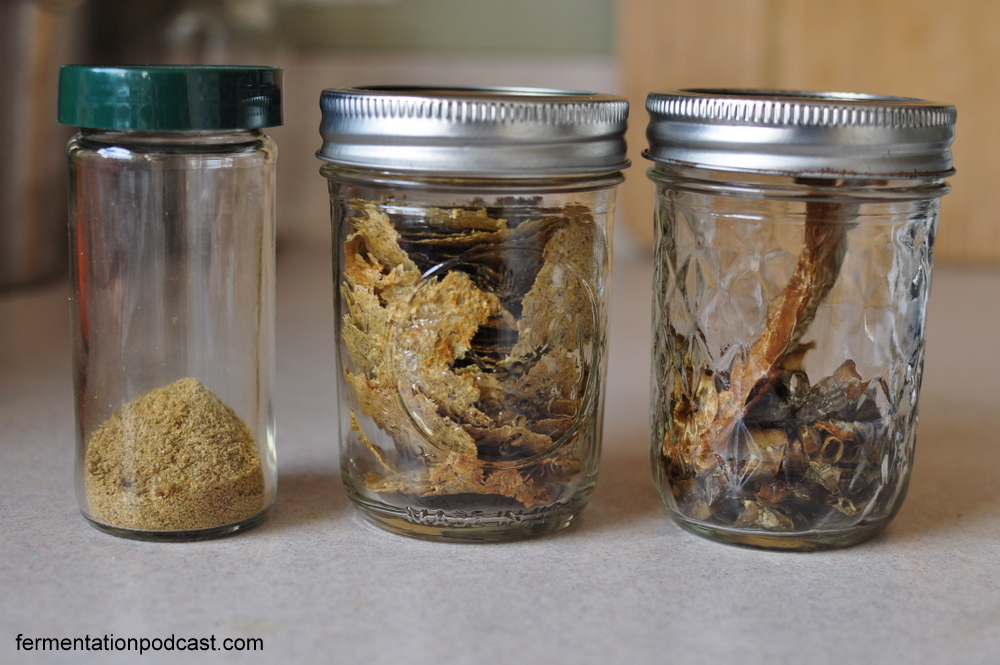
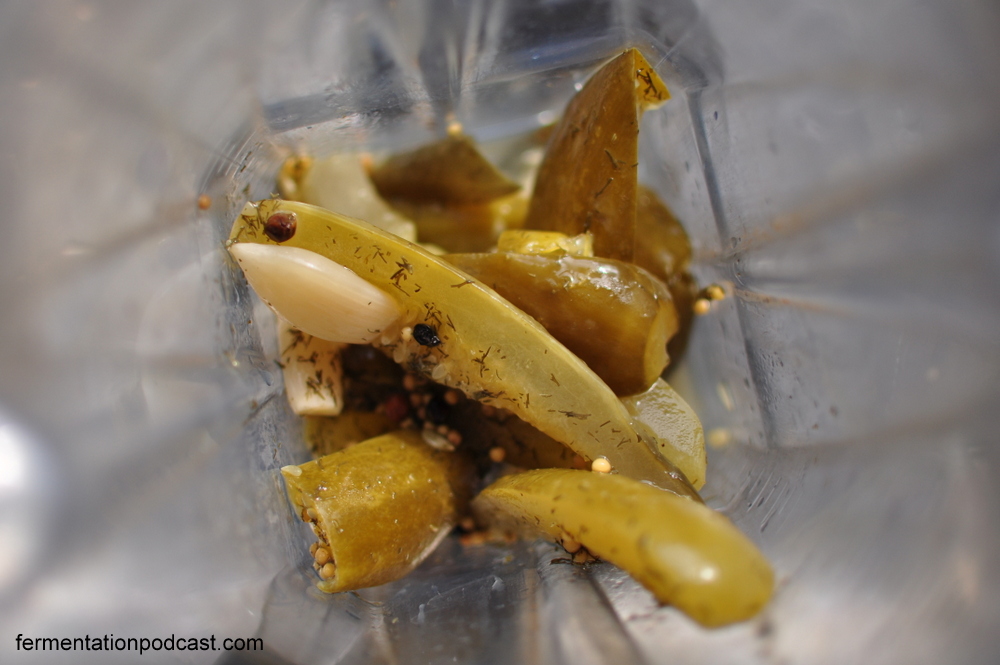
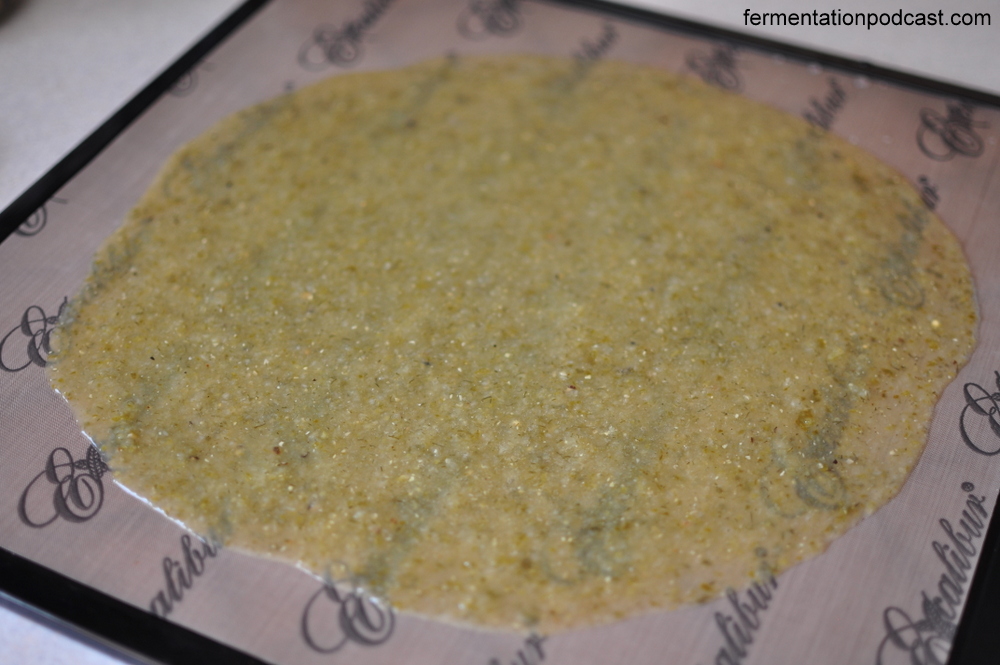
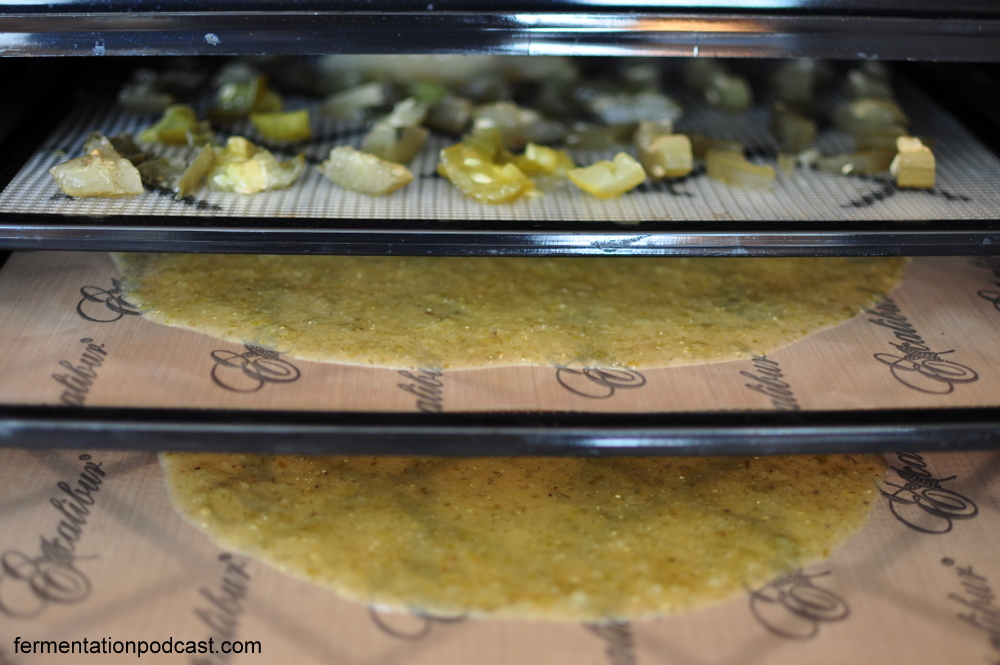
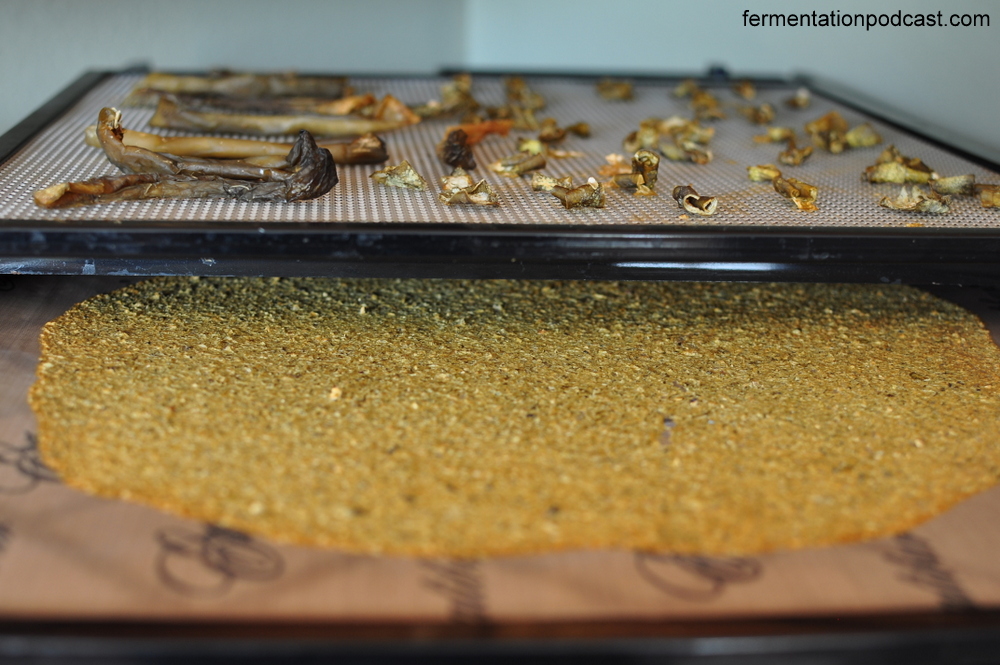
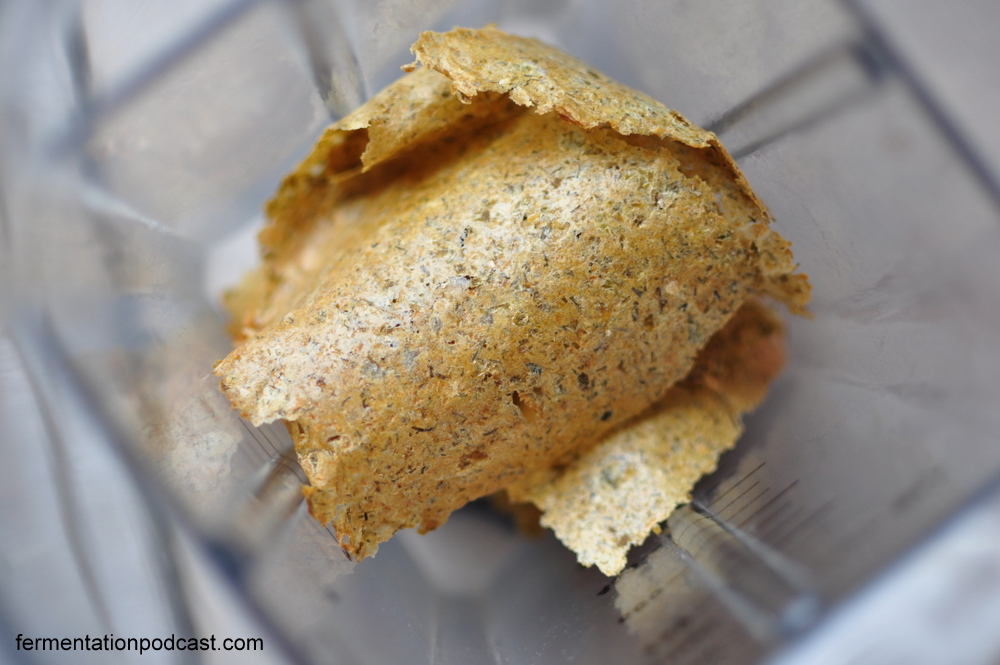
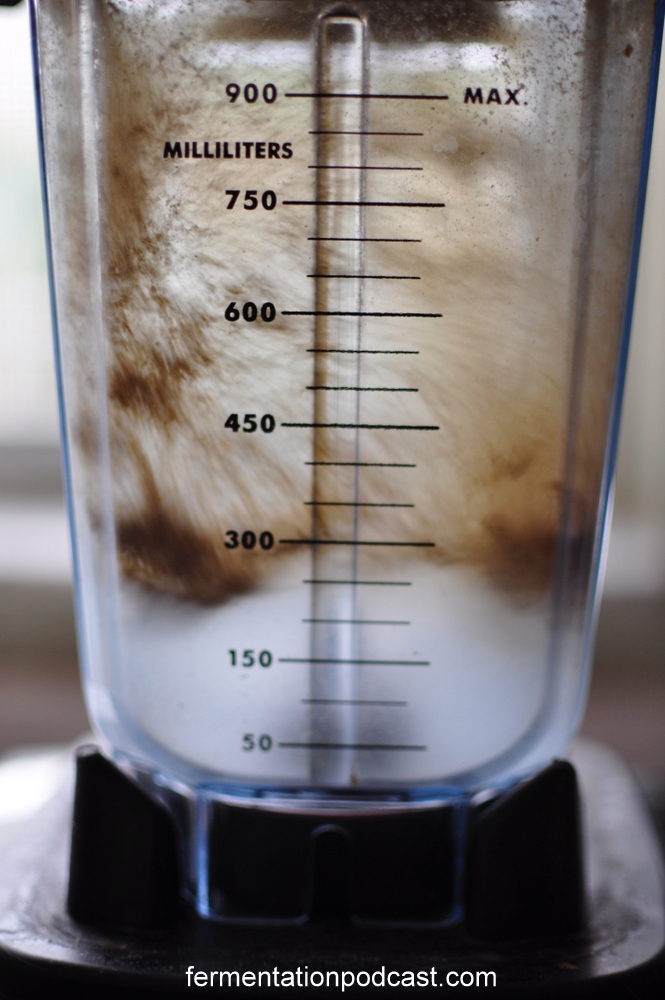
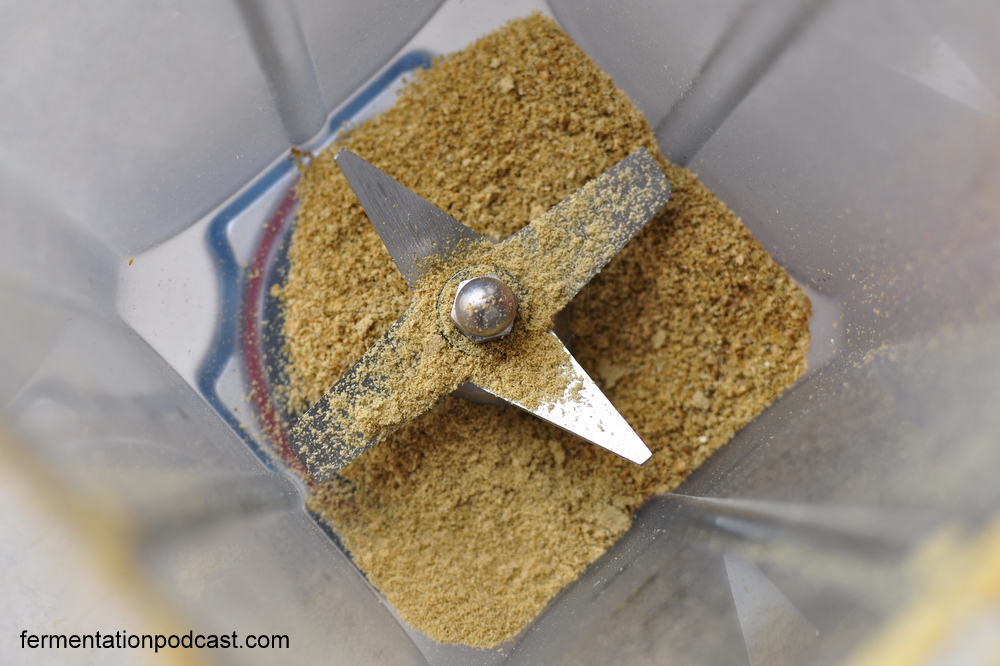
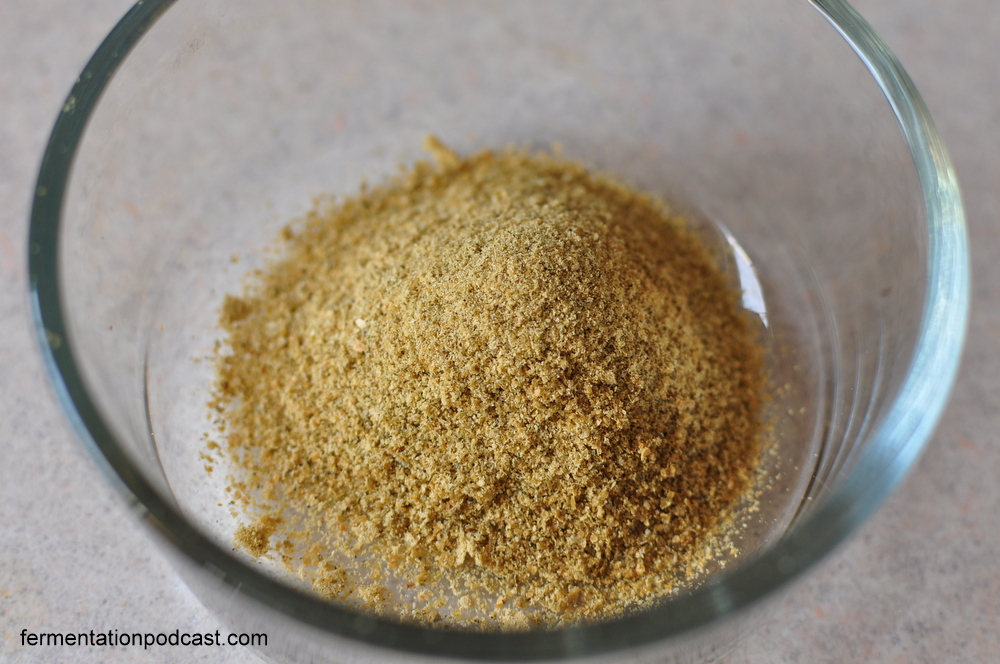
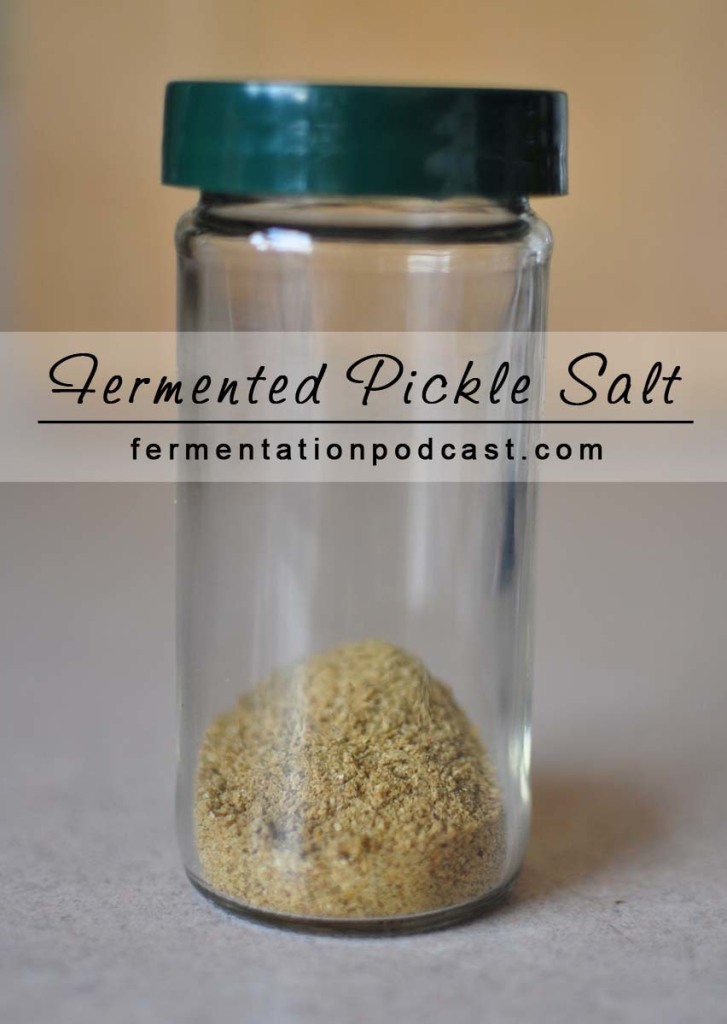
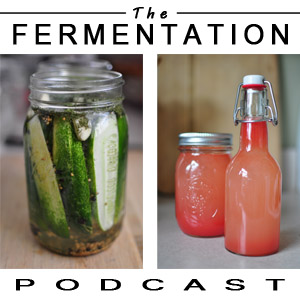

4 comments
2 pings
Skip to comment form
What a great idea … pickle salt! I think it would be a great addition to flax crackers for a bit of zing. Right now I don’t have any pickles to turn into salt, but I do have some raw sauerkraut that is a bit less than fresh. Bet that would work! Going to give it a try.
Author
Thanks Terry! You’ll have to let me know how the sauerkraut works out if you try it. Someone told me they did and love sauerkraut salt.
I am so excited to try this. I love pickles and I made some last fall that are a bit soft as well and a little too salty for most folks. so this may be just the ticket for them. I am loving my dehydrator, I want to dehydrate everything I see. I thought about the pickles and decided to google it and found this, thanks
I’m thinking this dehydrated ferment might be remoistened and used as starter culture?
[…] Dehydrating Pickles & Fermented Dill Pickle Salt Recipe – The Fermentation Podcast […]
[…] Fermented Dill Pickle Salt Recipe […]